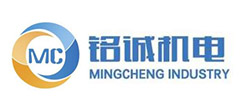How to reduce the influence of thermal deformation of CNC cutting machine
Release Time : 2019-03-12 View Count : 次Generally speaking, we talk about the thermal deformation problem of CNC cutting machine. Many people will focus on the scale deformation of cutting materials, but the CNC cutting machine itself is used as a hot cutting processing equipment. In frequent use, it may also be due to temperature. The change causes structural deformation. Although as a production and processing equipment, CNC cutting machine will adopt a series of processes in the manufacturing process to minimize the influence of thermal deformation, but as a user, in the usual use process, you should learn more about this knowledge and standardize the operating procedures. , reducing the effects of possible thermal deformation.
1, reduce fever
The main heat source that generates thermal deformation when the machine is inside generates heat, and the heat source should be separated from the host as much as possible.
2, control the temperature rise
After a series of measures to reduce heat sources, the thermal deformation will be improved. However, it is often difficult or even impossible to completely eliminate the internal and external heat sources of the machine tool. Therefore, the temperature rise must be controlled by good heat dissipation and cooling to reduce the influence of the heat source. The more effective method is to forcibly cool the hot part of the machine tool, or to heat the machine at a low temperature part to make the temperature of the machine point uniform, which can reduce the warpage caused by the temperature difference.
3. Improve machine tool organization
Under the same heat conditions, the machine tool mechanism also has a great influence on the thermal deformation. For example, the single-column mechanism used in CNC machine tools in the past may be replaced by a double-column mechanism. Due to the bilateral symmetry, the main axis of the double column mechanism is deformed in the other direction except for the vertical direction translation, and the vertical axis movement can be conveniently compensated by a coordinate correction amount.
The thermal deformation of the shaft occurs in the vertical direction in which the tool is cut. This minimizes the effect of thermal deformation of the spindle on the machining diameter. In the structure, the distance between the center of the main shaft and the main axial ground should be reduced as much as possible to reduce the total amount of thermal deformation. At the same time, the front and rear temperature rises of the headstock should be consistent to avoid tilting after the deformation of the main shaft.
Ball screws in CNC machine tools often work under conditions of high expected load, high speed and poor heat dissipation, so the lead screw is prone to heat. The consequences of thermal production of the ball screw are severe, especially in open loop systems, which can cause the feed system to lose positioning accuracy. At present, some machine tools use a pre-tensioning method to reduce the thermal deformation of the lead screw. For the thermal deformation that can not be eliminated by the above measures, the compensation pulse can be corrected by the numerical control system according to the measurement result.








